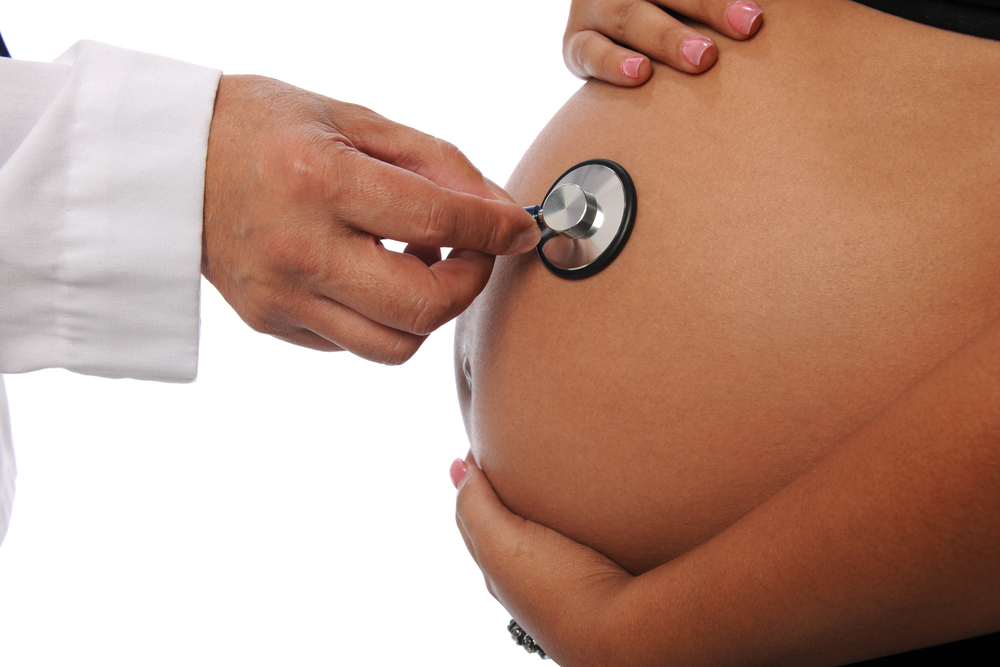Mom's High Blood Pressure May Harm Child in Old Age

Get the world’s most fascinating discoveries delivered straight to your inbox.
You are now subscribed
Your newsletter sign-up was successful
Want to add more newsletters?
Join the club
Get full access to premium articles, exclusive features and a growing list of member rewards.
High blood pressure during pregnancy could affect a child's thinking skills well into their retirement years, according to a new study from Finland.
The results showed that a woman's high blood pressure in pregnancy correlated with lower thinking abilities in her son, and a faster rate of cognitive decline in his later years. Men whose mothers had hypertension scored 4.36 points lower, on average, on cognitive tests at age 69, compared with men whose mothers had normal blood pressure.
Math reasoning was the most affected skill, according to the study. There was no difference between the groups in terms of the men's education level, the researchers said.
While it is unclear exactly how a woman's blood pressure might affect her son's thinking skills, "we can speculate that it is because of poor placenta function," said study researcher Katri Räikkönen, a psychology professor at the University of Helsinki. The placenta delivers nutrients to the fetus, but hypertension may reduce its ability to do this.
Dr. Vesna Garovic, a professor of medicine at the Mayo Clinic who specializes in hypertension during pregnancy, said that hormones could also play a role. The placenta produces hormones, and recent studies suggest some of these are involved in a child's cognition.
A mother's blood pressure, a child's brain
High blood pressure affects nearly 1 in 10 pregnancies, but little is known about how the condition affects the children as they enter old age.
Get the world’s most fascinating discoveries delivered straight to your inbox.
In the new study, researchers looked at 398 Finnish men, born between 1934 and 1944, whose mothers were tested for hypertension and the related pregnancy condition preeclampsia. The men underwent standardized cognitive tests at age 20 for compulsory military service, and were tested again at age 69. The tests measured language skills, math reasoning, and visual and spatial abilities.
The finding that the sons of women with high blood pressure had "impaired cognitive functioning, such a long time after pregnancy, is quite novel and significant," Garovic said. "This extends our observation that hypertensive pregnancies not only affect mothers, but may have detrimental effects to offspring."
The new findings may explain current ideas about babies born with low birth weight, Räikkönen said. Infants born to mothers with hypertension tend to have lower birth weights, and low birth weight has been linked with lower cognitive abilities, she said.
Women's health during pregnancy
Previous studies have also linked high blood pressure during pregnancy and preeclampsia with an increased risk of cardiovascular disease later in a woman's life.
"Pregnancy is really a window into a woman's future health," said Megan Mitchell, a cardiovascular disease researcher at the National Heart, Lung, and Blood Institute. Women are more likely to develop preeclampsia if they are obese, younger than 20 or older than 40, are having their first baby or are expecting twins or triplets, Mitchell said.
The new study had several caveats: the sample size was relatively small, and since the researchers collected the data in the 1930s and 1940s, the way that hypertension is diagnosed during pregnancy has changed — now, three blood pressure measurements are averaged, whereas in the past, diagnosis was based on one measurement, Räikkönen said.
The researchers are now conducting another study of nearly 4,000 children, some whose mothers had hypertension during pregnancy, to see if they find the same link.
The journal Neurology published the study in today’s (Oct. 3) edition.
Pass it on: High blood pressure in moms-to-be linked to child's poor thinking skills in old age.
FollowMyHealthNewsDaily on Twitter @MyHealth_MHND. We're also on Facebook & Google+.
 Live Science Plus
Live Science Plus










